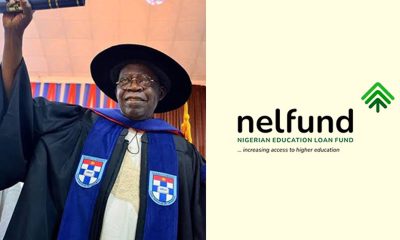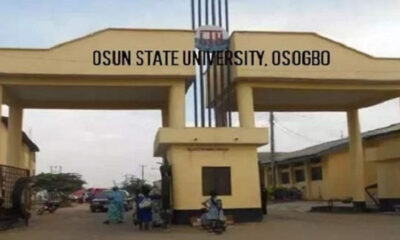Education
How Schools Hike WAEC, NECO Fees, Deny Poor Students Opportunities

Pelumi Abraham was looking gloomy as she stood beside her mistress in a hairdressing salon, handing her attachments while the mistress plaited a client’s hair.
She looked tired and lost, said nothing, nor contributed to the discussions going on in the saloon.
When she was asked if she was fine, she answered in the affirmative, but her mistress cut her short, saying, “the girl is angry because she was not able to complete her senior secondary school, as her parents could not register her for the Senior Secondary School Certificate Examination (SSCE).”
When the customer asked her how much the registration was, Pelumi responded that it was N40,000.
“My parents said there is no money to register me for WAEC and the school insisted that we must register both NECO and WAEC together. So they said I should wait until they are able to raise money, then they will register me with the next set,” she said.
She said: “I was forced to go and learn hairdressing and my greatest regret is that my mates will be ahead of me and I am not sure if my parents will be able to register me next year because then my younger sister will also be due to write senior secondary school leaving examination.”
Pelumi is not the only one who has lost out on completing her studies due to the inability of parents to pay examination fees. Many students are found in this category, while some parents have become debtors just so their wards can write WAEC.
READ ALSO:
- ASUU rejects parents’ N10,000 offer, insists on continuation of strike
- We don’t have enough medical doctors — NMA disagrees with Minister of Health
- Obi-Datti Movement says Omokri using Obi’s name to stay relevant
However, the registration of WAEC and NECO should not have been a big deal if school managements stuck to the original fees of N13,950; an amount that WAEC has been charging for the registration of each candidate since as far back as 2017. It is only recently that the examination body raised the amount to N18,000 due to prevailing inflation in the country.
The Head, Nigeria National Office, WAEC, Mr Patrick Areghan, while visiting its marking centre recently, said there had been a marginal increase of WAEC fees because of the country’s spiralling inflation.
“There has to be that marginal increase to enable us to do better services. The examiners are now happy as we are able to increase their marking fees through this marginal increase. The money actually went for the payments of examiners to enable us to satisfy them so that they can do the job better,’’ he said.
Meanwhile, Daily Trust has gathered that secondary schools charge between N40,000 to N100,000 to register a single candidate for WAEC while others charge the same amount or above for both WAEC and NECO.
A parent, Maryam Julius, said she paid N40,000 in a public school to register her daughter for WAEC.
She said: “It took me a lot before I could raise that amount because this is aside from the school fee and other levies. In fact I was among the last parents to pay because I remember I was told that I would pay an additional fee for late registration.”
A candidate who gave his name as Emmanuel said he paid N100,000 to register for WAEC in a private school.
“My parents insisted I write my exam in a private school because they felt I would do better there and the school insisted on that and this is aside from the school fees.”
For Kenneth Azuh, he paid N240,000 for his two kids in a private school in Gwarimpa, Abuja, to register them for both the examination and JAMB.
“I was very disturbed when I read in the newspaper recently that WAEC registration has just been increased from N13,950 to N18,000. I understood that the actual amount has been low and affordable, which means schools are ripping off us,” he said.
Kenneth blames the authorities for not doing their job properly, saying, “if we are a country that is serious, they should have been able to put measures in place to ensure that schools charge uniform amounts. Even if they had to add administrative charges, it should not be more than N10,000.”
A source close to the WAEC who does not want her name mentioned, said as far back as 2019, a parent complained that the school his children attended in Lagos charged N200,000 to register them for only WAEC.
She said in 2021, a relation of hers wanted to register in a school and she was told that they had closed registration and that she had to pay N40,000 as late entry fee aside N100,000 for registration.
“That was happening when WAEC was yet to commence registration. We were still preparing yet some schools had finished registration and were collecting late entry fees,” she said.
“They are ripping parents off and by so doing, many students could not register because of the hiked fee yet the Ministry of Education is not doing anything about it,” she lamented.
Reacting, the chairman a private School in Abuja, Yussuff Oriyomi, said they charge N70,000 for both WAEC and NECO and that they have no plan to increase it even with the slight increment from WAEC.
He said the N70,000 was for the examinations and associated administrative expenses and that they were actually subsidizing as other schools charged N100, 000 and above.
“For the supervisors, we send school buses to go and pick them up and to return them. Sometimes we will have to book a Bolt cab to pick them up if the school bus is not available. And there are instances where we didn’t go to pick them up, they come late and the students become apprehensive. When they come, we have to give them food as well,” he said.
He said those are some of the extra costs, adding that “the whole process of going to the WAEC office to regularize your registration, uploading the passport photos of students and a whole lot of back and forth that are involved, are part of the administrative expenses.”
“We charge N70,000, some charge N100,000 but it’s for both exams. So if NECO is N18,000, WAEC is N18,000 is that not N36,000 already; and you are paying N70,000. The balance is N34,000 and it’s from that we do data uploads, buy internet. Almost every year they keep changing the software that we use, and we buy the software,” he said.
Oriyomi said the WAEC office is in Gwagwalada and sometimes the exam officer has to go to the office up to 10 times before they finish the registration, adding that their processes were very slow. “Sometimes I’m scared that we may even be spending more than the money we collected from them.”
Reacting, the HNO of WAEC, Areghan said the council only charges N18, 000 for its examinations, whether public or private school.
“We have no hand in extra charges. Nothing more than N18,000 comes to WAEC.
We do not know anything about their providing logistics to supervisors. We pay supervisors for doing the job.”
“Their attempt to justify their illegal charges is laughable. Registration is online. Once you collect your registration materials, you can do your registration anywhere. I do not understand what they mean by “going to WAEC to register is time consuming,” he added.
He noted that it is the duty of the various Ministries of Education to check the excesses of schools in this regard and that parent should complain to their states’ Ministries of Education since schools are under them and not under WAEC.
When contacted, the Director of Press and Public Relations at the Federal Ministry of Education, Bem Ben Goong, said students who are in school registering for WAEC pay exactly what WAEC is charging, possibly with a small administrative fee attached to it, which is understandable.
He however refuted claims that private schools are charging higher amounts even for their own students.
He said, “No, that’s not true. If you have evidence, of anyone that has paid that amount, give it to me; we’re not ghosts. Give us verifiable evidence and we will confront that school.
Education
US cancels visas for Nigerian, other international students

US cancels visas for Nigerian, other international students
A sudden wave of visa cancellations has left hundreds of international students including many Nigerians reeling with uncertainty across the United States.
“This started off looking like isolated cases, but now it’s coming fast and furious,” said Matthew Maiona, a Boston-based immigration attorney, reflecting growing concerns among legal experts and advocacy groups.
A recent Associated Press review revealed that at least 901 students from 128 colleges have already been impacted by the cancellations.
While many impacted students come from countries like India and China, immigration attorneys report that no region appears to be immune from the sweeping crackdown. In several cases, students were reportedly flagged for minor infractions, such as traffic violations.
Four students in Michigan have filed a lawsuit against the U.S. government, claiming their visas were revoked without explanation. Similar legal actions are emerging across the country, with judges in states including New Hampshire, Wisconsin, and Montana issuing temporary orders to reinstate some students’ legal status.
READ ALSO:
- Buhari’s men pass vote of confidence in Tinubu
- Serial killer surrenders to police in Kano
- FG considers cushioning measures for Trump’s tariffs
- Rivers administrator Ibas denies summoning Fubara, deputy
In a marked change from previous procedures, universities are now discovering these visa terminations through the federal immigration database—sometimes before the students themselves are notified.
This abrupt policy shift is leaving many students in a state of uncertainty, with some just weeks away from graduation or starting jobs.
With no official response yet from the U.S. State Department or the Department of Homeland Security, confusion continues to grow.
Some students are being told to leave the country immediately, while others remain in the U.S. to appeal the decision—hoping to avoid detention or deportation.
In the meantime, many have adopted new routines: carrying immigration documents at all times and preparing for worst-case scenarios.
“It’s scary,” said a Chinese Ph.D. student at UNC Chapel Hill. “You don’t know if you’ll be the next one.”
US cancels visas for Nigerian, other international students
Education
No UTME candidates will take exam outside state of registration – JAMB
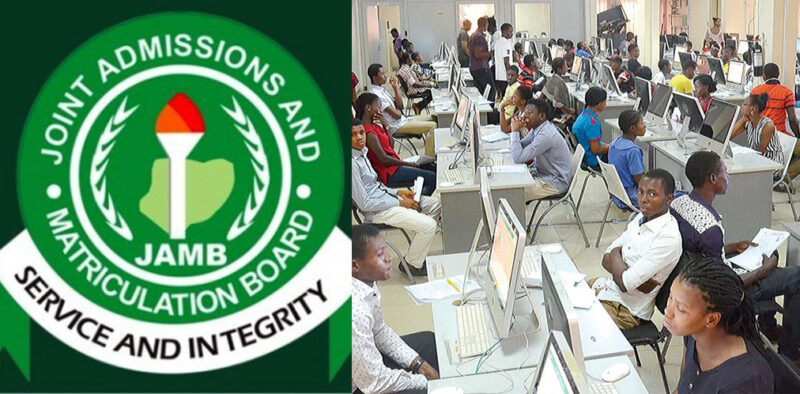
No UTME candidates will take exam outside state of registration – JAMB
The Joint Admissions and Matriculation Board (JAMB) has announced that candidates will not sit for the board’s examination outside their state of registration.
The announcement was made by JAMB Public Communication Advisor, Dr Fabian Benjamin, who spoke with the News Agency of Nigeria (NAN) on Tuesday.
Benjamin revealed that candidates who sat for the 2025 Unified Tertiary Matriculation Examination (UTME) outside their state of registration and residence were sent to the available mock centres closer to their areas.
According to him, the move was because not all the Computer Based Test (CBT) centres were available to conduct the mock examination.
READ ALSO:
- Consumers agency raids Abuja market over repackaged rice, unfair pricing
- Some PDP governors likely working for Tinubu – Dele Momodu
- Natasha’s allegation against Akpabio has contradictions – Agbakoba
Benjamin added that all registered centres would be available for the main exercise.
“If centres for mock in Abuja are filled up, and there were available centres in Nassarawa State, candidates will be sent there,” he said.
He, however, added that it was unlikely in the main exercise because there will be more centres conducting the main examination: no candidate would be sent outside their state of residence.
Benjamin further disclosed that early UTME registration also determines the proximity of a candidate’s centre.
If a centre was already filled up, the candidate may be assigned any available centre within the state.
No UTME candidates will take exam outside state of registration – JAMB
Education
NELFUND: How schools, banks are ripping off students

NELFUND: How schools, banks are ripping off students
The National Orientation Agency (NOA) said its recent investigations have revealed have uncovered several unethical practices by some institutions of higher learning in the disbursement of the Federal Government Student Loan Fund, NELFUND.
Paul Odenyi, Deputy Director, Communications and Media, NOA quoted the Director General of the Agency, Mallam Lanre Issa-Onilu as announcing the findings after meeting with NELFUND Managing Director, Mr. Akintunde Sawyerr, over the weekend.
According to the statement, the findings from investigations conducted by the Community Orientation and Mobilisation Officers (COMO) of NOA revealed that the tertiary institutions and banks are conspiring to short-change the students who are beneficiaries of NELFUND.
According to the statement, the reports indicated that certain university officials have been withholding vital information regarding loan disbursements, prompting immediate action from NELFUND.
“The NOA’s feedback shows how specific institutions have, in connivance with some banks, deliberately delayed payments to successful student applicants for personal financial benefit. Some universities fail to acknowledge the NELFUND’s disbursements to the students,” the statement by NOA indicated.
READ ALSO:
- U-20 AFCON: Nigeria drawn in Group B with Tunisia, Morocco, Kenya
- Kidnap kingpin arrested, many killed after shoot-out with police in Delta
- NIS expands contactless passport renewal to United States, others
The statement also quoted Sawyerr as confirming that some institutions are failing to inform students about loan disbursements made in their name while still requiring them to pay tuition fees.
He stated, “Recent findings by NELFUND have shown that some institutions have received student loan disbursements directly into their accounts yet neglect to inform the affected students or record the payments in their financial records, leading to unnecessary confusion.
“Withholding critical financial information from students is not only unethical but also a breach of the principles on which NELFUND was founded. We are prepared to take legal action against any institution engaged in such deceptive practices.”
In response, Mallam Issa-Onilu has issued a strong warning to these institutions and collaborating banks to cease such activities.
“NOA has directed its state directorates to provide further feedback from students across the country to ensure that the Federal Government takes appropriate actions against erring schools and banks,” Mallam Issa-Onilu was quoted as saying.
NELFUND: How schools, banks are ripping off students
-
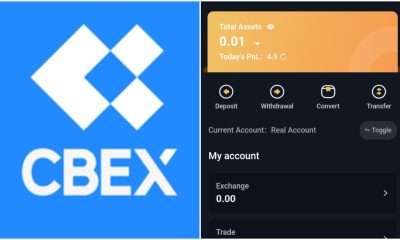
 Business2 days ago
Business2 days ago5 facts about trending digital trading platform, CBEX
-

 Insurance2 days ago
Insurance2 days agoLasaco Assurance attains ISO/IEC 27001:2022 certification for information security management
-
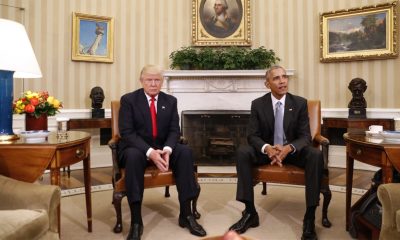
 International3 days ago
International3 days agoObama reacts as Trump freezes $2.3b Harvard University funding
-

 metro2 days ago
metro2 days agoBREAKING: Court strikes out defection suit against 27 pro-Wike Rivers lawmakers
-

 metro2 days ago
metro2 days agoNatasha’s allegation against Akpabio has contradictions – Agbakoba
-

 Politics2 days ago
Politics2 days agoNNPP lawmakers seek to rejoin APC after fallout with Kwankwaso
-

 Entertainment2 days ago
Entertainment2 days agoPortable regains freedom after Osupa drops cyberstalking case
-

 metro2 days ago
metro2 days agoNigerians lose N1.3tn as ponzi scheme CBEX collapses



